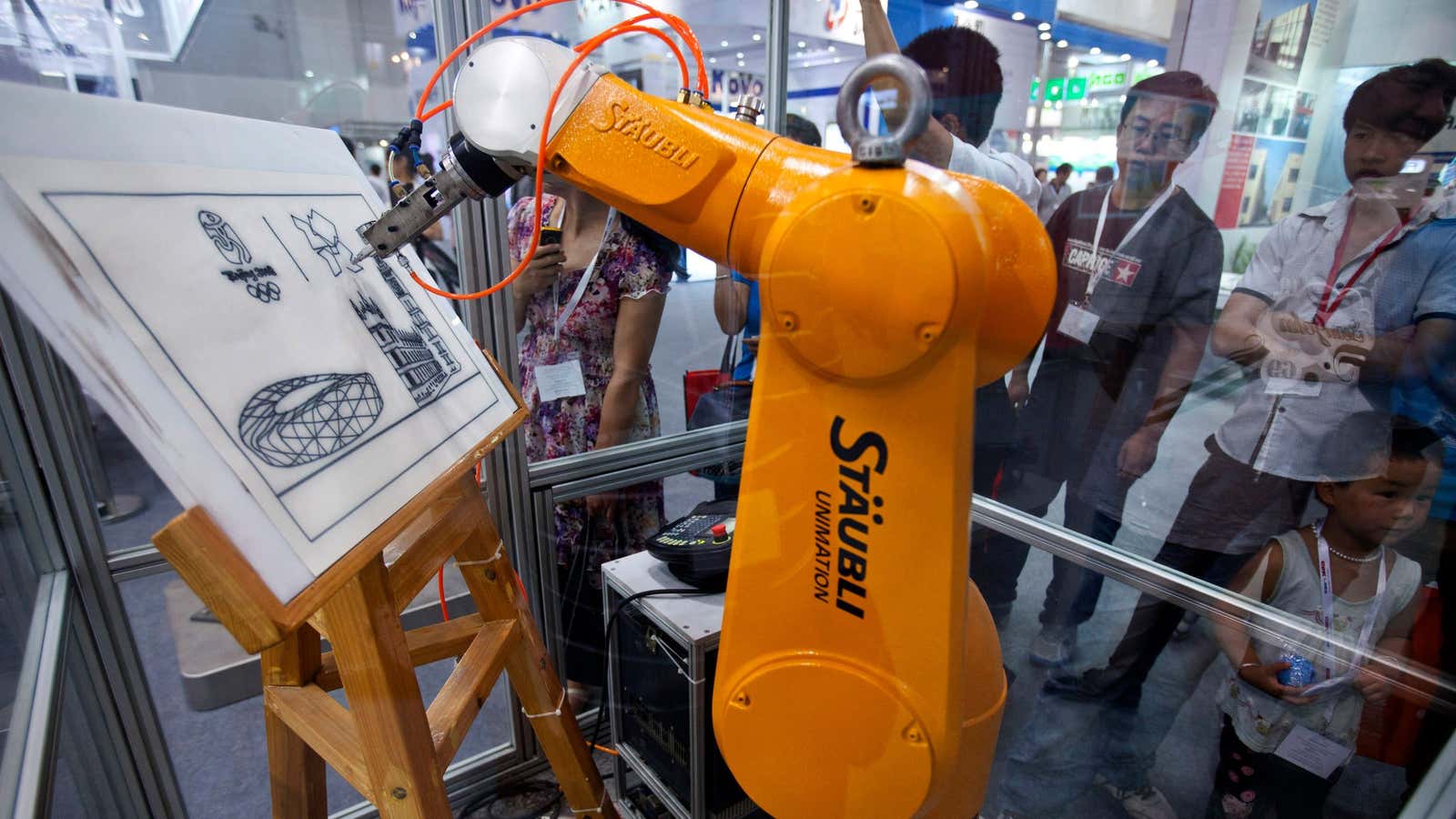You might think the creative types will be the last to go.
First, the robots will come for the mundane repetitive work. Sorry accountants, but you probably saw this coming. Then, maybe they’ll come for the jobs that no one likes doing much anyway. Automated floor scrubbing? A bot that chops the vegetables? Sure. But the artists should be the last in line. After all, creativity is what makes us human, right?
A new report from Adobe found that the majority of creative professionals—like artists, designers, and illustrators—do not feel threatened by automation. Rather, most believe that automation will help them be more creative by freeing them from the mundane parts of their creative process. An illustrator, instead of shading the background of an image, might develop a new concept for a character. A designer, instead of labeling hundreds of different Photoshop files, might get to end the day a little sooner.
Andreas Pfeiffer, the lead author of the Adobe report, believes that creativity is profoundly human. ”While machines and technologies like AI can enhance human creativity and manage tedious tasks, they cannot replace a human’s creative spark,” he says.
Plenty of creatives share Pfeiffer’s view—understandably, as the idea that there is something uniquely human about your work fuels your sense of purpose. “Personal creativity cannot be imitated by technology,” says Christoph Gey, a freelance art director in Germany. “It’s not because you know the tools that you are a designer.”
This belief, though valid, is also self-preserving. The creatives surveyed for the Adobe report believed AI would be able to serve as an assistant, helping them be more productive and get work done. However, they underestimated AI’s ability to produce a final product, which makes sense given their livelihoods depend on not just making art, but also pitching and selling it.
Recognizing that there can be “creative output” when a human plays a very small role in the process is a tough pill to swallow, but machines are already producing “art” that is indistinguishable from that made by humans. Computer-generated songs are getting millions of streams a month on Spotify, computer-generated stories are being published in national publications, and computer-generated paintings are being shown in prestigious art galleries.
Yes, creativity in an abstract sense is a uniquely human trait. But our definition of what creativity means will likely change with the rise of automation. Creativity might, for example, come in the form of an elegantly programmed machine or a tasteful selection from a number of algorithmically produced prototypes.
When art is a means to an end, automation will—and already does—augment the artistic process. But when art is an end in itself, a viewer can appreciate a computer-generated product and be none the wiser.
